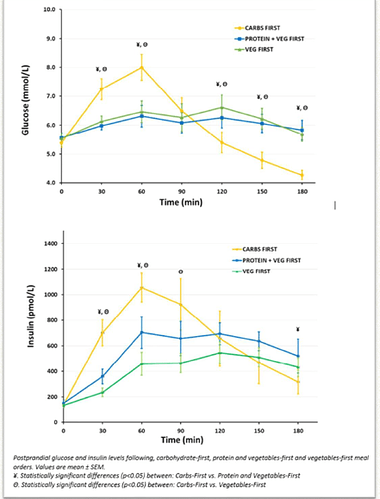I found a woman who addresses stuff I have always felt was important but didn’t get enough play in the public, and was often assumptions and superstition rather than research and measured results. I like her. She’s on instagram. She goes by the alias ‘glucose goddess’ (she wrote a book on the topic).
She has a great series of glucose charts on there about the spike (the spike and rise of glucose is a primary health issue) and how different foods affect it in sequence or combination . I think this is important stuff for people who are carb cycling, or who eat carbs/fruit with exercise.
So for example if you take 1 Tbsp of vinegar (any kind) in a bit of water prior to eating, even if you’re eating pasta, the spike is drastically reduced.
If you are eating a meal with for example steak, green beans and baked potato, your glucose will be very different if you eat it in the order she recommends – fiber (failing any of those, fats) first (green beans), protein second (steak), sugars/carbs last (potato). I mean it’s literally the difference between a meal that does legit body damage vs. one that is no big deal at all – and the same foods were involved.
If you eat the same sweet thing as dessert (so after your meal) instead of on its own or for breakfast, it’s drastically different in the body. She also in the book talks about the impact of exercising (like a walk) after you eat, and not being sleep deprived.
This issue, of food combination, and food sequence, is really important and seldom gets the attention it deserves.
Just thought I’d mention it. My new eating plan has two weeks of no carb restriction, in cycles, but I will be sure and eat in the sequence she recommends. She has ton of these cute little images with measured blood sugar examples, I’ll put a few in here.
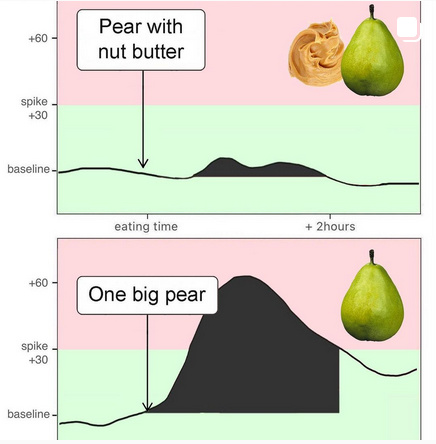
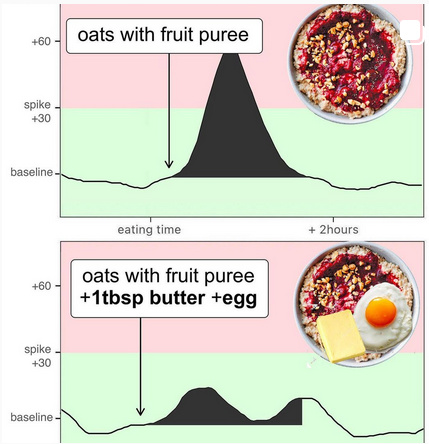
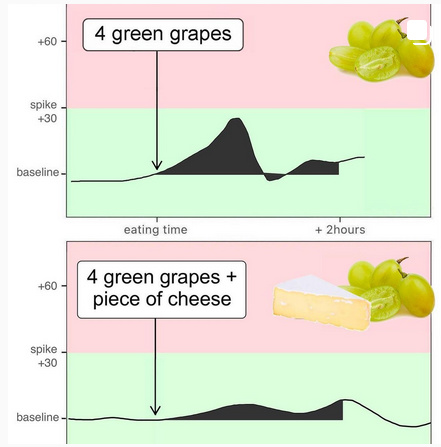
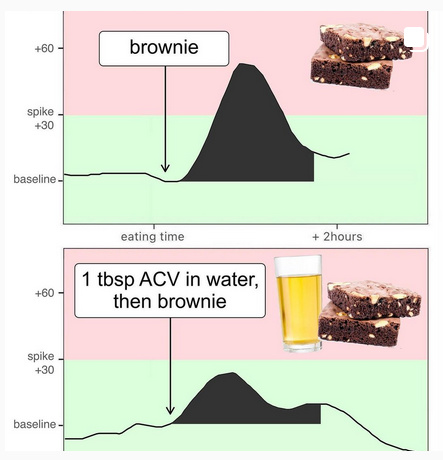
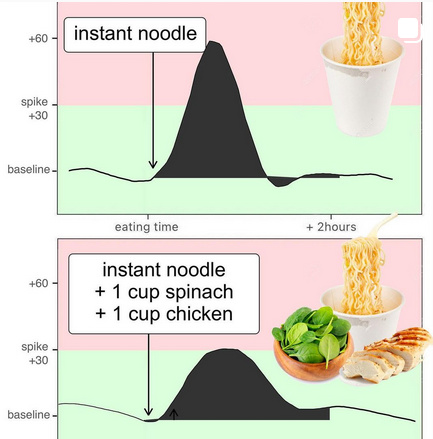
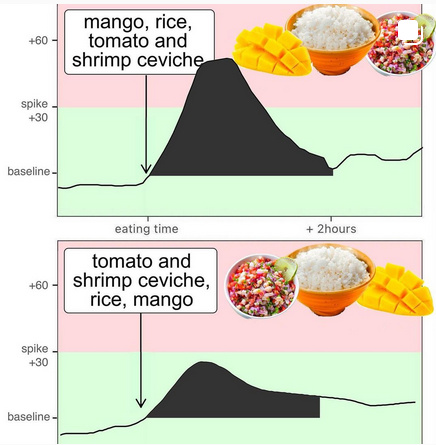

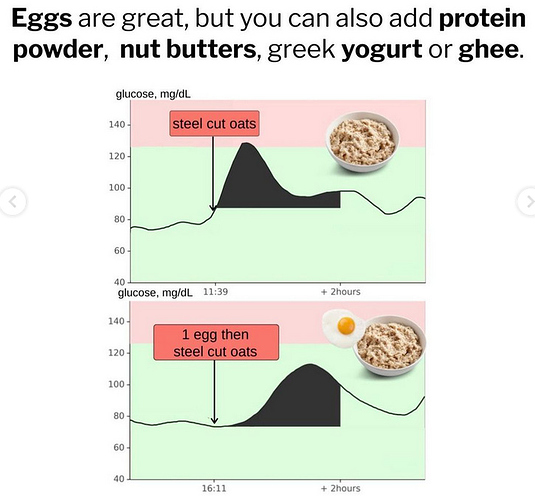
 My otherwise pretty resilient body managed to show slight sugar poisoning symptoms in the first case and all was fine in the second.
My otherwise pretty resilient body managed to show slight sugar poisoning symptoms in the first case and all was fine in the second.
